Our Services

Non-Destructive Testing
ICES offers a comprehensive suite of Non-Destructive Testing services, employing certified inspectors and advanced technology to ensure the reliability and integrity of your assets. Our NDT services include:
✔ Ultrasonic Testing
✔ Radiographic Testing
✔ Magnetic Particle Testing
✔ Liquid Penetrant Testing
✔ Visual Inspection
Destructive Testing
For a thorough understanding of material properties and structural integrity, ICES offers Destructive Testing services. Our range of DT services includes:
✔ Mechanical Testing
✔ Chemical Analysis
✔ Metallurgical Examinations


Onsite Heat Treatment
✔ By induction heating method.
✔ By internal heating method. (whole jobs)
✔ By permanent or modular or temporary furnace heating method.
✔ Refractory dryout / coating curing by internal heating using high velocity gas or oil-fired burner system.
By Localized Electrical Heating Method:
PWHT Internal Heating Method:


Permanent or Modular or Temporary Furnace Heating Method:
Refractory Dryout

Induction Heating Method:
It is a fast method that saves time when preheating is required. The setup time for the induction heating equipment is also much faster compared to other methods. Easy to wind, flexible induction coils can be used on many shapes, sizes, and types of parts.
Providing temperature uniformity and consistency of the weld quality are also some of the numerous benefits. In addition, induction offers safety benefits compared to resistance and open flame heating methods.


NDT Level III Service Provision:
Corrosion Inspection

Our Expertise
Our team of 400+ staff comprises certified and experienced professionals with in-depth knowledge of corrosion, NDT, and DT testing techniques. We stay abreast of industry advancements to provide cutting-edge solutions.
✔ Ultrasonic Testing (UT): Utilizing ultrasonic waves for detecting subsurface irregularities and measuring material thickness.
✔ Magnetic Particle Testing (MT): Detecting surface defects using magnetic fields and particles.
✔ Dye Penetrant Testing (PT): Identifying surface flaws in non-porous materials with penetrating dyes.
✔ Vacuum Box Testing: Ensuring the integrity of confined welds and joints.
✔ Visual Testing (VT): Visually identifying surface defects and inconsistencies.
✔ Positive Material Identification (PMI): Verifying material composition for specification compliance.
✔Advanced NDT: Utilizing cutting-edge techniques for comprehensive material assessment.
✔ Phased Array Ultrasonic Testing (PAUT): High-resolution imaging for precise defect detection.
✔ Time of Flight Diffraction (TOFD): Detecting and sizing defects using diffraction patterns.
✔ Computed Radiography (CR): Digital radiography for accurate imaging and analysis.
✔ Heat Treatment: Applying controlled heat and cooling processes to enhance material properties.
✔ Refractory dryout: Refractory dryout is the controlled process of applying heat to a refractory lining to remove water from the lining system without causing damage to the refractory materials



